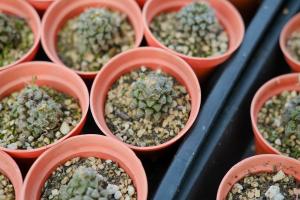Ribosomes and Their Functions in a Plant Cell
Plant cells are complex entities that have many different parts and components that work together to keep the cell alive and healthy. One of these important components is the ribosome. Ribosomes are tiny structures that can be found in all cells, including plant cells. They play an integral role in protein synthesis and are essential to the overall function of the cell. Here we will discuss the function of ribosomes in a plant cell and the important role they play.
What are Ribosomes and How do They Work?
Ribosomes are organelles within the cell responsible for the synthesis of proteins. They are composed of RNA and protein molecules and are found free-floating in the cytoplasm or attached to the endoplasmic reticulum. Ribosomes work by synthesizing proteins using the genetic code contained within the RNA molecules. They read the genetic code and match specific amino acids together to create proteins, which are important for the cell's growth and maintenance.
The Role of Ribosomes in a Plant Cell
Ribosomes play a critical role in a plant cell鈥檚 survival. Some of their main functions include:
Protein Synthesis
As previously mentioned, the primary function of a ribosome is to synthesize proteins. These proteins are necessary for many of the cell鈥檚 processes including metabolism, signaling, and growth. Without ribosomes, the cell would not be able to create the proteins it needs to survive or function properly.
Repair and Maintenance
Ribosomes are also responsible for repairing and maintaining the cell's structures. When a cell is damaged, ribosomes create new proteins to help repair the damage and keep the cell functioning properly. They also play a role in maintaining the cell's shape and structure by building and reinforcing areas of the cell that may become weak over time.
Regulating Gene Expression
Ribosomes are also involved in regulating gene expression. They can bind to messenger RNA (mRNA) molecules and help control their translation into proteins. This helps the cell to produce the right amount of specific proteins at the right time, allowing it to respond to environmental changes and maintain homeostasis.
Conclusion
In conclusion, ribosomes are an essential component of a plant cell. They play a critical role in protein synthesis, repair and maintenance, and gene expression regulation. Without ribosomes, the cell would not be able to create the proteins it needs to survive or function properly. Therefore, understanding the function of ribosomes and their importance in a plant cell is essential for the overall understanding of plant biology.

 how many times do yo...
how many times do yo... how many planted tre...
how many planted tre... how many pine trees ...
how many pine trees ... how many pecan trees...
how many pecan trees... how many plants comp...
how many plants comp... how many plants can ...
how many plants can ... how many plants and ...
how many plants and ... how many pepper plan...
how many pepper plan...































